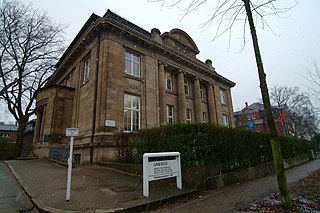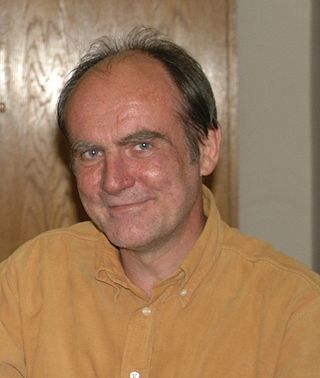Related Research Articles

Public Administration or Public Policy and Administration is the implementation of public policy, administration of government establishment, management of non-profit establishment, and also a subfield of political science taught in public policy schools that studies this implementation and prepares people, especially civil servants in administrative positions for working in the public sector, voluntary sector, some industries in the private sector dealing with government relations, regulatory affairs, legislative assistance, corporate social responsibility (CSR), environmental, social, governance (ESG), public procurement (PP), public-private partnerships (P3), and business-to-government marketing/sales (B2G) as well as those working at think tanks, non-profit organizations, consulting firms, trade associations, or in other positions that uses similar skills found in public administration.

Andragogy refers to methods and principles used in adult education. The word comes from the Greek ἀνδρ- (andr-), meaning "man", and ἀγωγός (agogos), meaning "leader of". Therefore, andragogy literally means "leading men", whereas "pedagogy" literally means "leading children".
The International Political Science Association (IPSA), founded under the auspices of UNESCO in 1949, is an international scholarly association. IPSA is devoted to the advancement of political science in all parts of the world. During its history it has helped build bridges between East and West, North and South, and has promoted collaboration between scholars in both established and emerging democracies. Its aim is to create a global political science community in which all can participate, most recently it has been extending its reach in Eastern Europe and Latin America. IPSA has consultative status with the Economic and Social Council of the United Nations (ECOSOC) and it is a member of the International Science Council, which brings together over 230 science organizations across the world and actively cooperates with partners from the United Nations system, such as the United Nations Environment Programme (UNEP), the World Health Organization (WHO), and the United Nations Development Programme (UNDP).
The Association of Internet Researchers (AoIR) is a learned society dedicated to the advancement of the transdisciplinary field of Internet studies. Founded in 1999, it is an international, member-based support network promoting critical and scholarly Internet research, independent from traditional disciplines and existing across academic borders.

The Public Knowledge Project (PKP) is a non-profit research initiative that is focused on the importance of making the results of publicly funded research freely available through open access policies, and on developing strategies for making this possible including software solutions. It is a partnership between the Faculty of Education at the University of British Columbia, the Canadian Centre for Studies in Publishing at Simon Fraser University, the University of Pittsburgh, Ontario Council of University Libraries, the California Digital Library and the School of Education at Stanford University. It seeks to improve the scholarly and public quality of academic research through the development of innovative online environments.
The Eurydice Network is a European Commission-funded education information network in Europe. It consists of a coordinating European Unit and a series of national units; its aim is to provide policy makers in the member states of the European Union and in the wider European region, with up-to-date and reliable information on which to base policy decisions in the education field.

The Association for Slavic, East European, and Eurasian Studies (ASEEES) is a scholarly society dedicated to the advancement of knowledge about the former Soviet Union and Eastern and Central Europe. The ASEEES supports teaching, research, and publication relating to the peoples and territories within this area.

The International Society for Scientometrics and Informetrics was founded in 1993 in Berlin at the International Conference on Bibliometrics, Informetrics and Scientometrics. It is an association for professionals in the field of scientometrics.

The Israel Institute for Advanced Studies is a research institute in Jerusalem, Israel, devoted to academic research in physics, mathematics, the life sciences, economics, and comparative religion. It is a self-governing body, both in its administrative function as well as its academic pursuits. It is one of the nine members of the symposium Some Institutes for Advanced Study (SIAS).
Laboratory of Comparative Human Cognition (LCHC) is a social science laboratory located at the University of California, San Diego (UCSD) since 1978. Scholars at LCHC pursue research focused on understanding the complex relationship between cognition and culture in individual and social development. Such research requires collaboration among scholars from a variety of research disciplines, including cognitive science, education, linguistics, psychology, anthropology, and sociology. LCHC also functions as a research and training institution, arranging for pre-doctoral, doctoral, and post-doctoral training, as well as research exchanges with scholars throughout the world. In addition, LCHC sponsors a journal, Mind, Culture and Activity: An International Journal (MCA), and an open internet discussion group, XMCA.
The European Distance and E-Learning Network (EDEN), originally named the European Distance Education Network - established in 1991, is an international educational association open to institutions and individuals dealing with e-learning, open education, and distance education. EDEN is a not-for-profit organisation, registered as a limited company under English law.
The Center for Global Communication Studies (CGCS) is a research center located within the Annenberg School for Communication at the University of Pennsylvania. CGCS serves as a research hub for students and scholars worldwide studying comparative communication studies, media law, and media policy. The center also provides consulting and advisory assistance to academic centers, non-governmental organizations, regulators, lawyers, and governments throughout the world.
International communication is the communication practice that occurs across international borders. The need for international communication was due to the increasing effects and influences of globalization. As a field of study, international communication is a branch of communication studies, concerned with the scope of "government-to-government", "business-to-business", and "people-to-people" interactions at a global level. Currently, international communication is being taught at colleges worldwide. Due to the increasingly globalized market, employees who possess the ability to effectively communicate across cultures are in high demand. International communication "encompasses political, economic, social, cultural and military concerns".
The Design Research Society (DRS), founded in the United Kingdom in 1966, is an international society for developing and supporting the interests of the design research community. The primary purpose of the DRS, as embodied in its first statement of rules, is to promote ‘the study of and research into the process of designing in all its many fields'. This established the intention of being an interdisciplinary learned society, taking a scholarly and domain independent view of the process of designing. Membership is open to anyone interested in design research, and members with established experience and a strong background in design research may apply to be elected as a DRS Fellow.

The Center for Process Studies was founded in 1973 by John B. Cobb and David Ray Griffin to encourage exploration of the relevance of process thought to many fields of reflection and action. As a faculty center of Claremont School of Theology in association with Claremont Graduate University, and through seminars, conferences, publications and the library, CPS seeks to promote new ways of thinking based on the work of philosophers Alfred North Whitehead, and Charles Hartshorne, and others in the process tradition.
The College of Education is one of 15 colleges at The Pennsylvania State University, located in University Park, PA. It houses the departments of Curriculum and Instruction, Education Policy Studies, Learning and Performance Systems, and Educational Psychology, Counseling, and Special Education. Almost 2,300 undergraduate students, and nearly 1,000 graduate students are enrolled in its 7 undergraduate and 16 graduate degree programs. The college is housed in four buildings: Chambers, Rackley, Keller, and CEDAR Buildings.

Jost Gippert is a German linguist, Caucasiologist, author, and professor for Comparative Linguistics at the Institute of Empirical Linguistics at the Goethe University of Frankfurt.
Mejai Bola Mike Avoseh is a professor of adult and higher education at the University of South Dakota. His teaching and research interests are in the areas of adult education, comparative/international/multi-cultural education and indigenous pedagogy. He is a member of the board of the American Association for Adult and Continuing Education (AAACE) since 2016, and of the International Society for Comparative Adult Education (ISCAE) from 2020 to 2023, and the Director of the Commission for International Adult Education (CIAE) of AAACE.
References
- ↑ "Archived copy" (PDF). Archived from the original (PDF) on 2012-06-24. Retrieved 2012-03-18.
{{cite web}}: CS1 maint: archived copy as title (link)